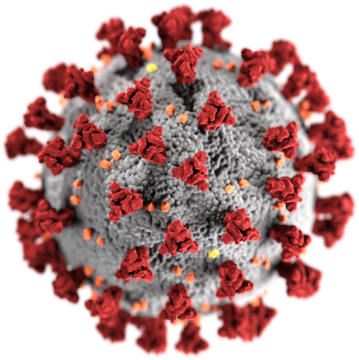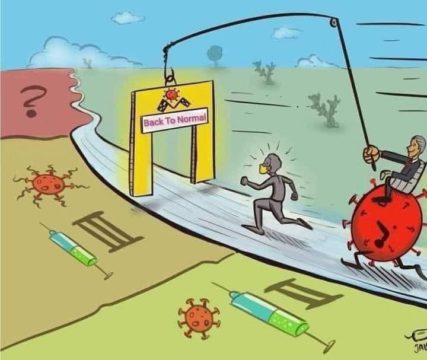A Bali Update – Balidiscovery.com Editorial
As Bali, Indonesia, and the world continue to consider how best to deal with the financially and medically crippling global coronavirus pandemic, it might be worthwhile to consider the words of American theologian Reinhold Niebuhr and the “Serenity Prayer” he arguably first published in 1951:
Dear God, Grant me the serenity to accept the things I cannot change; Courage to change the things I can; And wisdom to know the difference.
The COVID-19 pandemic, the continuing parade of new variants, and, if scientists are to be believed, an inevitable range of global viruses yet to come – will form an inevitable part of future history for as long as human beings continue to inhabit the planet.

A Growing Acceptance of Future Contagion
In Bali, frustration and dismay with the prolonged economic devastation resulting from the current global pandemic have prompted the issuance of a “Moral Declaration” by a group assembled under the banner of “Bali Bangkit” (“Bali Arise!).
“Bali Bangkit” represents an historically unprecedented unified coalition including almost every major tourism stake holding organization and non-governmental group in Bali (NGO), including GIPI, PHRI, ASITA, IHGMA, HILLSI, AMPB, BHA, FORKOMDEWI, PAIKETAN, KRAMA Bali, BASCOMM, SUKSNA Bali, HFLA, GEMA PERDAMAIAN, HPI, HIPMI, IFBEC, Bali MICE Forum, BSWA, ASPERDA, BBPD Badung, HRA Bali, NCPI Bali, BWA, UHA, ICA Bali, IHKA, MASATA Bali, BCC, ISA, and AHLEI Community.
That “Moral Declaration” by “Bangkit Bali” boldly declares:
- Full support for reopening Bali’s borders in July 2021 under government-established Cleanliness, Hygiene, Safety, and Environmental Protocols (CHSE) that the coalition insists must now be strictly enforced and managed in terms of any potential risk.
- The need for joint implementation, strict enforcement, and consistent supervision of the CHSE Protocols by all Bali’s tourism industry components.
- The readiness of the Island and its tourism industry to accept all penalties and sanctions in connection with any failure to comply with CHSE Protocols by Hotels, Villas, Restaurants, and other elements of the tourism industry.

In the midst of the current very muddled international approach to international travel and the free movement of people, the “Serenity Prayer” quoted above needs to become a mantra under which Bali can march into an uncertain future. This begins by discerning those things with the Island’s Power to change and those things beyond its control and influence.
Those things within the power of Bali to control and monitor include:
- The implementation of health protocols (e.g., masks, physical distancing, hygiene) to reduce the risk of COVID-19‘s Spread,
- Screen and testing for COVID-19 at all entry ports.
- The ongoing programs to achieve a population-wide minimum of 70% inoculations in order to achieve “herd immunity.
- Ensuring quality quarantine and medical care facilities are available in Bali to care for those later identified to be infected with the virus.
- Introducing digital “tracking systems” to enable ongoing contact with non-immunized people who may need PCR scans after inadvertently coming into contact with people who have recently tested “positive” for COVID-19.
And, those things beyond the power of Bali to control:
- New outbreaks of COVID-19 around the globe and their corresponding rates of infection.
- The appearance and international prevalence of new variants of the coronavirus.
- The emergence of new pandemic threats viewed by scientists as “inevitable” in the future.
- The ever-changing access and lockdown policy decision of other countries.
- The financial and operation ability of international airlines to resume sustainable air service to Indonesia and other destinations on their networks as a whole.
It is both sad and somewhat delusional, that many of the strategies currently being pursued in Indonesia in response to COVID-19 are dependent on factors beyond the Country’s ability to control or influence.
Dealing with the Future as it Comes
Monitoring the global reaction to COVID-19 at the moment, many destinations (e.g., the USA, UK, and Europe) focus to a varying degree on CHSE Protocols while gradually reopening their borders, transportation networks, restaurants, entertainment spots, and public places. As a result, tourism and travel are suddenly on the rebound in these locations as “pent-up travel demand” expresses itself in a sudden surge,
But, will COVID-19 infection rates now increase because of the growing relaxation of rules limiting social contact and physical distancing?
The answer is most probably “yes.”
But faced with a deepening, unprecedented global economic crisis, the public policy emphasis must now shift away from an unsustainable “lockdown” scenario to the more practicable program of monitoring, control, and treatment of the continuing pandemic.
The Bali Situation
Similarly, it may now be time for policymakers in Indonesia and Bali to follow developing COVID-19 practice in the USA, Europe and elsewhere by cautiously reopening its borders while focusing all remaining efforts on facilitating a more unrestrained movement of populations.
In truth, acceptance and learning to live with a pandemic and its ever-changing variants will form part of our lives for an unforeseeable future to come and represent, in fact, the only choice Bali and world has left.
Isolation and lockdown are not sustainable over the long term without risking the destruction and dismantling of human society as we know it.
Isolation and lockdown are not sustainable over the long term without risking the destruction and dismantling of human society as we know it.
The future is as it is and is unlikely to discernably change in the foreseeable future. Thus, in dealing with health pandemics now and those surely to come, isolation and lockdowns just won’t work.
As suggested by the “Bali Bangkit” coalition, it’s time to open the border and deal with the future – come what may.

